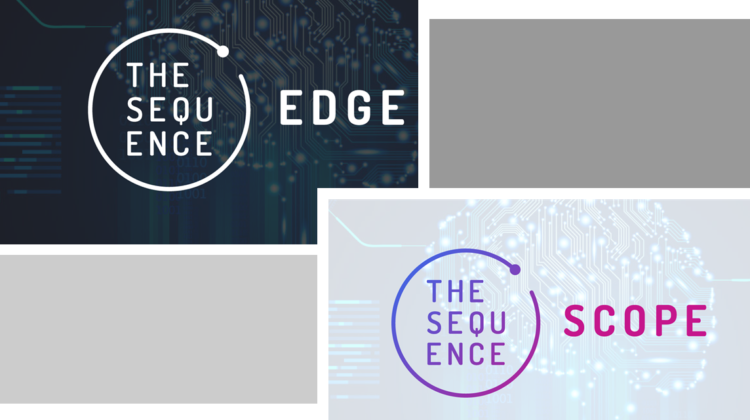
Weekly newsletter that discusses impactful ML research papers, cool tech releases, the money in AI, and real-life implementations.
The Sequence Scope is a summary of the most important published research papers, released technology and startup news in the AI ecosystem in the last week. This compendium is part of TheSequence newsletter. Data scientists, scholars, and developers from Microsoft Research, Intel Corporation, Linux Foundation AI, Google, Lockheed Martin, Cardiff University, Mellon College of Science, Warsaw University of Technology, Universitat Politècnica de València and other companies and universities are already subscribed to TheSequence.
Artificial intelligence (AI) has really brought together the worlds of software and hardware. It’s been decades since chip manufacturers have paid so much attention to advancements in software architectures in order to design better specialized hardware. The mainstream adoption and rapid evolution of neural network architectures have triggered an arms race between companies like Google, Nvidia, IBM, Microsoft, Intel, Qualcomm, and several well-funded startups in order to design chips optimized for deep learning models. And this race seems to be getting more diverse and specialized.
The specialization in AI-chip designs is certainly an interesting trend. Not only do we have chips like Google’s TPU optimized for deep neural networks, but also chips for specific types of neural networks like CNNs and Transformers, as well as for specific tasks such as computer vision, language and, because why not, for specific subtasks such as inference. Just this week, AI-chip startup Recogni announced a large financing round to accelerate the development of its AI-chip optimized for computer vision, while IBM Research unveiled the design of a new AI-chip optimized for precision inference tasks. Given the high technical barriers and the complexities of the business models around AI-chips, we are likely to see quite a bit of M&A activity and consolidation in the space. AI platform vendors like Google and Microsoft will continue making more inroads into AI-hardware, while chip vendors like Nvidia and Intel will deliver better AI software accelerators. This type of rapid innovation in hardware architectures seemed inconceivable a few years ago. All thanks to AI.
🗓 Next week in TheSequence Edge:
Edge#65: the concept Blackbox Hyperparameter Optimization: Bayesian Methods; how Amazon use AutoML for the entire lifecycle of ML models; Azure AutoML as one of the simplest and most robust AutoML platforms in the market.
Edge#66: deep dive into deep learning model that achieve superhuman performance at one of the most difficult poker games in the world.
Now, let’s review the most important developments in the AI industry this week
IBM AI Chip
IBM Research published a paper detailing the design of an AI chip optimized for low precision training and inference ->read more on IBM Research blog
Transporter Networks
Google Research published a paper and open source code of Transporter Networks, a neural network architecture that streamlines the training of robots for visual-manipulation tasks in 3D environments ->read more on Google AI blog
Mastering Atari with DreamerV2
Google Research and DeepMind published a paper unveiling DreamerV2, a model-based reinforcement learning agent that achieved human-level performance in multiple Atari games ->read more on Google Research blog
Designer-Centered Reinforcement Learning
Microsoft Research published an insightful blog post proposing some clever optimizations to traditional reinforcement learning methods->read more on Microsoft Research blog
SmartNoise
Microsoft revealed more details about SmartNoise, an open-source framework for differential privacy in machine learning applications ->read more on Cloudblog’s Microsoft blog
Habitat Challenge v3
Facebook AI Research(FAIR) announced the third edition of the Habitat Challenge, a research initiative to foment the interaction of machine learning agents with physical environments->read more on Facebook AI blog
- Log analysis and observability startup Humio was acquired by cloud-native cybersecurity company CrowdStrike, in a mostly cash deal worth approximately $400 million. Humio built tools that allow enterprises to ingest and analyze logs in real-time at a fraction of the cost of existing decades-old technologies.
- Graph analytics startup TigerGraph raised $105 million in Series C funding. With its distributed native graph architecture, TigerGraph helps organizations analyze many different aspects of data so that they can be used with one another to form new models and generate new insights.
- Tax credit software platform Boast.ai secured a $100 million credit facility. Boast.ai aims to automate the government grant application process with a machine learning-powered tax credit platform.
- Data-driven personalization provider Personetics raised $75 million in funding. Its proprietary AI software platform works inside financial institutions’ software, analyzing customers’ financial data and behavior in real-time, delivering tips and suggestions to improve their longer-term financial health.
- Workflow automation startup AirSlate raised $50 million in debt financing. AirSlate’s platform lets customers automate processes using single, no-code solutions.
- Real-time object recognition startup Recogni raised $48.9 million. Their novel Vision Cognition Module (VCM) is capable of running deep-learning networks with great efficiency. This purpose-built solution can enable cars to detect small objects at long distances.
- Math tutoring app Photomath raised $23 million in series B funding. Powered by AI, the app instantly scans, accurately solves, and intuitively explains math problems to users through step-by-step explanations.
- AI solutions startup Peak.AI raised a $21 million Series B round. Its AI system fuels competitive advantages and adds an intelligence layer to existing systems, using AI to generate insights, make predictions and optimize business processes.
- Data management and modeling platform for enterprises Solidatus, raised $19.5 million in a Series A round. Solidatus helps enterprises effectively map, visualize, manage and monetize data.
- Real-time augmented visual Intelligence platform Edgybees raised a $9.5 million Series A round. Edgybees’ solution combines advanced computer vision and machine learning technologies to accurately match aerial video to satellite reference imagery in real-time.
- AI-based noise cancellation startup Krisp raised $9 million as an extension to its $5 million A round. Its AI-powered app removes background noise and echoes from meetings, leaving only human voices.
